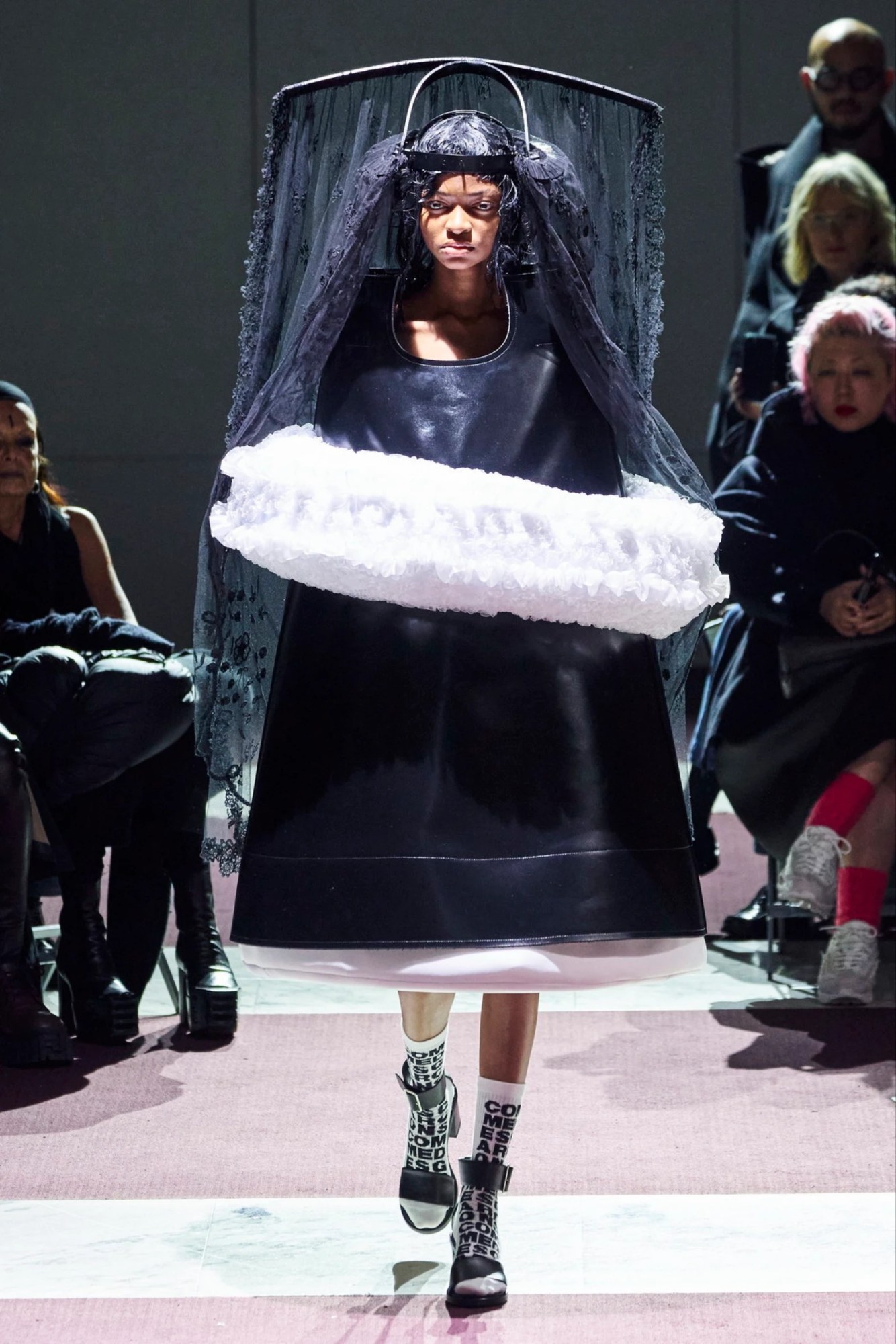Rei Kawakubo is the doyenne of contemporary fashion. Since founding Comme des Garçons in 1973, the Japanese designer has upended and reformed our understanding of fashion’s purpose, function and value one season after another. She’s shown us clothing can offer comfort while making a pointed sociopolitical commentary; how it can be pragmatic while being intimidatingly abstract; how a skirt can be elevated to the status of sculpture, while also just being a damned good skirt.
Building a house on a foundation of such conceptual rigour, while also appealing to the fashion mainstream, has, it goes without saying, required hard work. According to a new interview with the infamously reticent designer, not even the coronavirus pandemic has been able to slow her tireless work ethic. “To create means to keep looking for something new all the time, no matter where you are, no matter what kind of situation you are in, and that is the truth,” she tells Cathy Horyn over email for The Cut. Rei goes on to explain that her Tokyo studio has “had 30 per cent of our staff come to work every day to keep the company going while maintaining the utmost precaution of not spreading the virus” during a period in which the official government advice was to ‘stay home’. She made no exception for herself, either, heading in “every day from early morning to keep working on creation as well as on administrative stuff of the company”.
This is less down to her being a harsh taskmaster, or a wilful flouter of official counsel, than it is to a strong “fear that once I take a break from my work of creation, I won’t be able to get back there again, that I won’t be able to move forward anymore,” she says.
Elsewhere in the conversation, Rei muses on what tomorrow’s fashion industry could look like, expressing concerns that “people will most probably conform to live their lives within their boundaries” in the wake of the pandemic, which she fears could hamper our inclinations “to do outrageous things, to be different from others, and to let yourself go” — features she deems vital for the creation of the highest fashion or art.
She does, however, hint at optimism when expressing appreciation for the diversity we see today, and how that spills over into the clothes we wear: “We must approve and find values in different styles and tastes,” she says, “easy clothes one can wear without much thought, low-priced clothes, dresses that uplift the spirit, uniforms, poisonlike clothes, etc.” ‘Poison’, here, is a translation of doku in Japanese, meaning something “very strong — much, much better than boring”, rather than something that’ll put you in hospital.
What does feel a little poisonous, though, is the general atmosphere of our times — whether socially, politically or, well, quite literally. Rather than be beaten down by it, however, Rei sees the “injustice and absurdity” of the world as a resource for productivity and change. “I put this energy of anger into creation. I get angry and work hard every day and night. That’s the least of what I can do now.”

